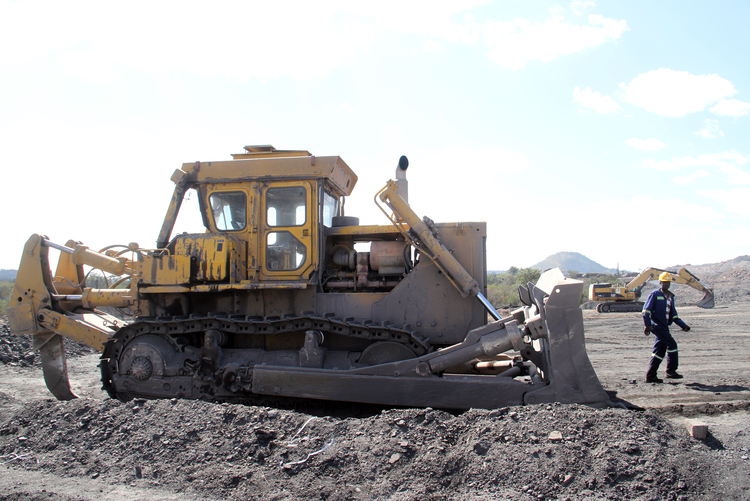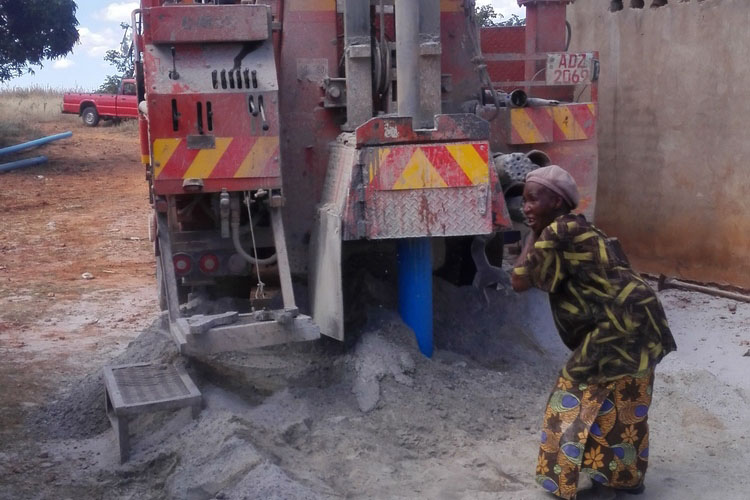
The Sunday Mail

The following are the questions e-mailed to Thomas Makore, Hwange Colliery Company’s managing director. They were sent to him on June 9, a day after The Sunday Mail Extra toured the mine and spoke to some workers.
1. How many of the commissioned equipment are not working and what are the mechanical or electrical challenges on the equipment?
2. What went wrong with the acquisition of the equipment? Were the specifications wrong? Is the equipment suitable for Hwange operations, weather, terrain and work load, etc?
3. Hwange recently overhauled executive management, what was the rationale and what does the restructuring mean for the Colliery?
4. Last year when we visited the mine, workers had gone 16 months without salaries. Another 16 months have since been added to the backlog. Workers want to find out if ever they will get their salaries, and when?
5. When the equipment was commissioned, a turn-around time of three months was touted. What have been the impediment to this turn-around?
6. What necessitated the closure of underground mining last September?
7. How far has Hwange gone with discussions for capital injection? How much is being negotiated? And what is the financial settlement being sought for? Salaries or recurrent expenditure?
8. When we arrived there was no production because there was no fuel. How and why should a mine get to such a level?
9. How far has Hwange gone with the rights’ issue?
10. Most of the challenges centre around staff welfare, what measures are being put in place by the mine to cushion workers? The workers are saying the food rations, once in six months, are not enough.
11. Any other information that you think might be of help to our readers.
Here are Makore’s responses:
There were 34 pieces of equipment that was commissioned last year from BELAZ (Belarus) and BEML (India). There was an electrical fault on one BELAZ front-end loader that caused a fire that engulfed the operator cabin. Otherwise, all the machines are working.
Performance challenges have only been in respect of two excavators supplied by BEML and the challenges have been brought to the supplier’s attention. The challenges have been a combination of technical problems and operating conditions.
Their performance have been under close monitoring because we have not achieved the specified throughput or performance. These challenges are being addressed by both the supplier and Hwange Colliery.
The supplier has since supplied replacement parts, field personnel and has extended the warranty of the excavators by 1 000 hours or six months at the supplier’s cost, of which Hwange Colliery have re-deployed the machines to a mining area which has less prevalence of water, shallower and a more even coal seam.
The equipment is still being monitored and a contractual remedy or resolution may be considered should the excavators remain challenged.
The equipment was procured through an open tender process. The further motivation was that the suppliers that won the bid also offered vendor financing. Reference checks were done in areas where the equipment has been successfully deployed and inspections and tests were done by our technical team prior to delivery. Contingency plans and contractual remedies are being employed to ensure that the turn-around plan succeeds.
Hwange Colliery underwent management restructuring because of the economic slowdown worldwide where demand has significantly reduced and prices have fallen. In order to survive, the company had to restructure its management in order to reduce employment costs, which were not tallying with the company’s business activity.
The salary arrears amount to an equivalent of 30 months’ salaries. The company is currently considering a number of options in order to address the salary arrears which options the company shall soon table to the employees.
The plan to be tabled balances both the employees’ and company’s interests and the plan is aligned to the company’s turnaround business to enable the company to direct its resources to areas of production and return on investment so that debt, loan and recurrent obligations are met on a sustainable basis.
The turnaround strategies also include plans to pay current salaries of employees driven by improved production and sales. The tight liquidity in the financial markets has constrained the company’s efforts to pay salaries and creditors, a scenario across the entire economic divide.
Staff is paid nominal amounts to cushion them and sometimes food hampers as a contingency plan. The company continues to engage employees through their worker representatives who are regularly updated on the organisation’s financial situation which is, however, not only peculiar to the colliery but to other downstream industries as well that are also affected by the global economic recession.
Hwange Colliery will continue to follow a sustained and vigorous foreign market growth strategy as part of efforts to complement Government’s efforts of foreign currency generation.
The company seeks to consolidate and penetrate new regional markets in countries such as Botswana, Zambia, DRC and Tanzania among others. Hwange Colliery’s coking coal, produced from its underground operations, is of a high quality and is highly sought after in the region and beyond.
Unfortunately, the underground mining operations stopped last year when the critical mining equipment for underground mining , the continuous miner, had a major breakdown.
This piece of equipment and other supporting equipment needs to be refurbished or replaced. The total cost is approximately $6,4million. The company is in the market to secure this funding. Recapitalisation and retooling of the operations still requires a substantial amount of capital investment.
The company is taking a structured and measured approach to capital raising so that the company is not over-geared and can meet its payment obligations. Mining operations are capital intensive and require a large amount of working capital. The fuel stock-outs and inconsistent supply of production inputs due to inadequate working capital are some of the major reasons for the subdued production levels.



